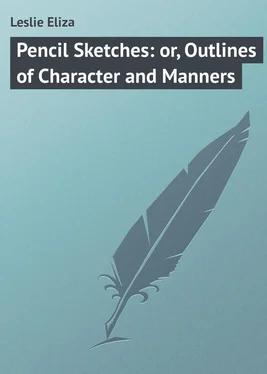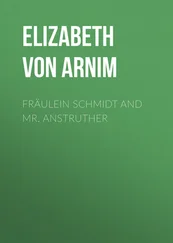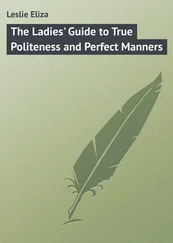Eliza Leslie - Pencil Sketches - or, Outlines of Character and Manners
Здесь есть возможность читать онлайн «Eliza Leslie - Pencil Sketches - or, Outlines of Character and Manners» — ознакомительный отрывок электронной книги совершенно бесплатно, а после прочтения отрывка купить полную версию. В некоторых случаях можно слушать аудио, скачать через торрент в формате fb2 и присутствует краткое содержание. Жанр: foreign_prose, foreign_humor, на английском языке. Описание произведения, (предисловие) а так же отзывы посетителей доступны на портале библиотеки ЛибКат.
- Название:Pencil Sketches: or, Outlines of Character and Manners
- Автор:
- Жанр:
- Год:неизвестен
- ISBN:нет данных
- Рейтинг книги:3 / 5. Голосов: 1
-
Избранное:Добавить в избранное
- Отзывы:
-
Ваша оценка:
- 60
- 1
- 2
- 3
- 4
- 5
Pencil Sketches: or, Outlines of Character and Manners: краткое содержание, описание и аннотация
Предлагаем к чтению аннотацию, описание, краткое содержание или предисловие (зависит от того, что написал сам автор книги «Pencil Sketches: or, Outlines of Character and Manners»). Если вы не нашли необходимую информацию о книге — напишите в комментариях, мы постараемся отыскать её.
Pencil Sketches: or, Outlines of Character and Manners — читать онлайн ознакомительный отрывок
Ниже представлен текст книги, разбитый по страницам. Система сохранения места последней прочитанной страницы, позволяет с удобством читать онлайн бесплатно книгу «Pencil Sketches: or, Outlines of Character and Manners», без необходимости каждый раз заново искать на чём Вы остановились. Поставьте закладку, и сможете в любой момент перейти на страницу, на которой закончили чтение.
Интервал:
Закладка:
"I am glad that I can set this question at rest," replied Miss Atwood, smiling heroically; "I have heard the circumstance mentioned when my father has spoken of his great-uncle Jemmy, the chinaman, and of the shoemaker's family into which uncle Jemmy married, and in which were the two Sallys. Debbius was called equally after his sister and his aunt."
Then turning to the very handsome and distingué -looking young gentleman who had brought her the flowers, and who had seemed much amused at the foregoing dialogue, Miss Atwood took his hand, and said to Aunt Quimby: "Let me present to you a grandson of that very Debbius, Mr. Edward Symmington, my sort of cousin; and son of Mr. Symmington, the lawyer, who chanced to marry Debbius's daughter."
Young Symmington laughed, and, after telling Miss Atwood that she did everything with a good grace, he proposed that they should join some of their friends who were amusing themselves further up in the woods. Miss Atwood took his arm, and, bowing to Mrs. Quimby, they departed.
"That's a very pleasant young lady," said she; "I am glad I've got acquainted with her. She's very much like her grandfather, the ironmonger; her nose is the very image of old Benny's."
Fearing that their turn might come next, all the young people now dispersed from the vicinity of Aunt Quimby, who, accosting a housewifely lady that had volunteered to superintend the arrangements of the table, proposed going with her to see the baskets unpacked.
The remainder of the morning passed pleasantly away; and about noon, Myrtilla Cheston and her companions, returning from their ramble, gave notice that the carriages from town were approaching. Shortly after, there appeared at the entrance of the wood, several vehicles filled with ladies and gentlemen, who had preferred this mode of conveyance to coming up in the early boat. Most of the company went to meet them, being curious to see exactly who alighted.
When the last carriage drew up, there was a buzz all round: "There is the Baron! there is the Baron Von Klingenberg; as usual, with Mrs. Blake Bentley and her daughters!"
After the new arrivals had been conducted by the Chestons to the house, and adjusted their dresses, they were shown into what was considered the drawing-room part of the woods, and accommodated with seats. But it was very evident that Mrs. Blake Bentley's party were desirous of keeping chiefly to themselves, talking very loudly to each other, and seemingly resolved to attract the attention of every one round.
"Bromley," said Mrs. Quimby, having called Captain Cheston to her, "is that a baron?"
"That is the Baron Von Klingenberg."
"Well, between ourselves, he's about as ugly a man as ever I laid my eyes on. At least, he looks so at that distance; a clumsy fellow, with high shoulders and a round back, and his face all over hair, and as bandy as he can be, besides; and he's not a bit young, neither."
"Barons never seem to me young," said Miss Turretville, a young lady of the romantic school, "but Counts always do."
"I declare even Mr. Smith is better looking," pursued Aunt Quimby, fixing her eyes on the baron; "don't you think so, Miss?"
"I think nothing about him," replied the fair Turretville.
"Mr. Smith," said Myrtilla, "perhaps is not actually ugly, and, if properly dressed, might look tolerably; but he is too meek and too weak. I wasted much time in trying to entertain him, as I sat under the tree; but he only looked down and simpered, and scarcely ventured a word in reply. One thing is certain, I shall take no further account of him."
"Now, Myrtilla, it's a shame, to set your face against the poor man in this way. I dare say he is very good."
"That is always said of stupid people."
"No doubt it would brighten him wonderfully, if you were to dance with him when the ball begins."
"Dance!" said Myrtilla, "dance with him . Do you suppose he knows either a step or a figure? No, no! I shall take care never to exhibit myself as Mr. Smith's partner, and I beg of you, Aunt Quimby, on no account to hint such a thing to him. Besides, I am already engaged three sets deep," and she ran away, on seeing that Mr. Smith was approaching.
"Well, Mr. Smith," said the old lady, "have you been looking at the shows of the place? And now the greatest show of all has arrived – the Baron of Clinkanbeg. Have you seen him?"
"I believe I have," replied Mr. Smith.
"You wander about like a lost sheep, Mr. Smith," said Aunt Quimby, protectingly, "and look as if you had not a word to throw at a dog; so sit down and talk to me . There's a dead log for you. And now you shan't stir another step till dinner-time." Mr. Smith seated himself on the dead log, and Mrs. Quimby proceeded: "I wish, though, we could find places a little nearer to the baron and his ladies, and hear them talk. Till to-day, I never heard a nobleman speak in my life, having had no chance. But, after all, I dare say they have voices much like other people. Did you ever happen to hear any of them talk, when you lived in England?"
"Once or twice, I believe," said Mr. Smith.
"Of course – excuse me, Mr. Smith – but, of course, they didn't speak to you ?"
"If I recollect rightly, they chanced to have occasion to do so."
"On business, I suppose. Do noblemen go to shops themselves and buy their own things? Mr. Smith, just please to tell me what line you are in."
Mr. Smith looked very red, and cast down his eyes. "I am in the tin line," said he, after a pause.
"The tin line! Well, never mind; though, to be sure, I did not expect you were a tinner. Perhaps you do a little also in the japan way?"
"No," replied Mr. Smith, magnanimously, "I deal in nothing but tin, plain tin!"
"Well, if you think of opening a shop in Philadelphia, I am pretty sure Billy Fairfowl will give you his custom; and I'll try to get Mrs. Pattypan and Mrs. Kettleworth to buy all their tins of you."
Mr. Smith bowed his head in thankfulness.
"One thing I'm sure of," continued Aunt Quimby, "you'll never be the least above your business. And, I dare say, after you get used to our American ways, and a little more acquainted with our people, you'll be able to take courage and hold up your head, and look about quite pert."
Poor Mr. Smith covered his face with his hands and shook his head, as if repelling the possibility of his ever looking pert.
The Baron Von Klingenberg and his party were all on chairs, and formed an impervious group. Mrs. Blake Bentley sat on one side of him, her eldest daughter on the other, the second and third Miss Bentleys directly in front, and the fourth, a young lady of eighteen, who affected infantine simplicity and passed for a child, seated herself innocently on the grass at the baron's feet. Mrs. Bentley was what some call a fine-looking woman, being rather on a large scale, with fierce black eyes, a somewhat acquiline nose, a set of very white teeth (from the last new dentist), very red cheeks, and a profusion of dark ringlets. Her dress, and that of her daughters, was always of the most costly description, their whole costume being made and arranged in an ultra fashionable manner. Around the Bentley party was a circle of listeners, and admirers, and enviers; and behind that circle was another and another. Into the outworks of the last, Aunt Quimby pushed her way, leading, or rather pulling, the helpless Mr. Smith along with her.
The Baron Von Klingenberg (to do him justice) spoke our language with great facility, his foreign accent being so slight that many thought they could not perceive it at all. Looking over the heads of the ladies immediately around him, he levelled his opera-glass at all who were within his view, occasionally inquiring about them of Mrs. Blake Bentley, who also could not see without her glass. She told him the names of those whom she considered the most fashionable, adding, confidentially, a disparaging remark upon each. Of a large proportion of the company, she affected, however, to know nothing, replying to the baron's questions with: "Oh! I really cannot tell you. They are people whom one does not know – very respectable, no doubt; but not the sort of persons one meets in society. You must be aware that on these occasions the company is always more or less mixed, for which reason I generally bring my own party along with me."
Читать дальшеИнтервал:
Закладка:
Похожие книги на «Pencil Sketches: or, Outlines of Character and Manners»
Представляем Вашему вниманию похожие книги на «Pencil Sketches: or, Outlines of Character and Manners» списком для выбора. Мы отобрали схожую по названию и смыслу литературу в надежде предоставить читателям больше вариантов отыскать новые, интересные, ещё непрочитанные произведения.
Обсуждение, отзывы о книге «Pencil Sketches: or, Outlines of Character and Manners» и просто собственные мнения читателей. Оставьте ваши комментарии, напишите, что Вы думаете о произведении, его смысле или главных героях. Укажите что конкретно понравилось, а что нет, и почему Вы так считаете.












